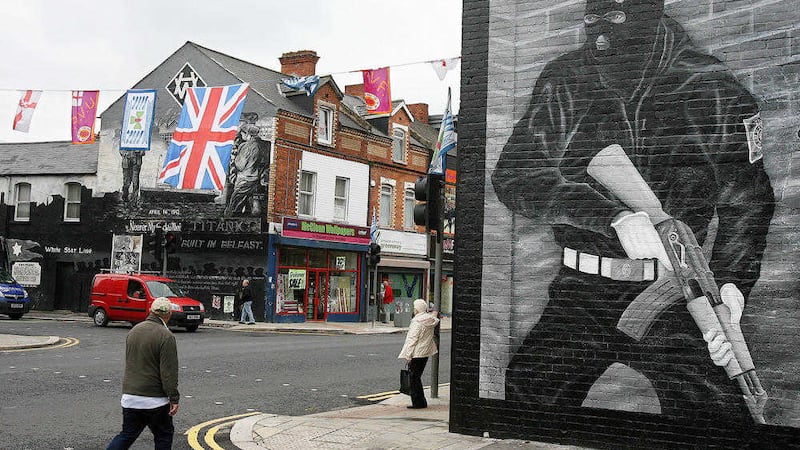Every so often in this homeless political orphan, something happens to prove that Northern Ireland is nearing a point of no return.
No return to the relatively comfortable days of managed division, when Westminster bought temporary peace and votes with handouts.
No return to dealing with splits in unionism and nationalism that allowed the DUP and Sinn Féin to pretend that the O’Neill/Little-Pengelly partnership was a force for unstoppable progress.
The implosion of the UUP, until the 1970s the unchallenged guardian of the union, shows that half measures no longer work.
Doug Beattie set out to make a case for a modern unionism that could attract nationalist-lite voters but finally had to admit defeat.
Not only were nationalists unimpressed with Alliance-type unionism, but the main body of the UUP rejected the concessions to modernism – like attitudes to sexual preferences – that were entailed. It won back a seat in the recent Westminster election, but largely because of Robin Swann’s handling of Covid.
Now it has to reinvent the reinventions of the last three leaders since 2017, either rewriting the rules that give conservative constituency associations such power or a forced marriage to the still-Paisleyite DUP.

The early suggestion that Beattie or Mike Nesbitt should have a second attempt at leadership demonstrates the dearth of talent in the party of Trimble and Empey.
More important, it gives a clue as to whether Stormont can make an easy transition from the present form of top-led coalition to something more lasting and effective.
The Good Friday settlement was the beginning of a process, rather than an end – like Brexit – and a means of letting unionism get used to the growing influence of republicanism, as demographic change took effect.
Unionists know as well as anyone that if Sinn Féin does not make some progress towards Irish unity, cracks will appear in its united front. So although steps have to be taken that they do not like, unionists will naturally make them as small and slow as possible, hoping their more basic supporters aren’t overly offended.
Yet there are signs that even such steps as dual language signage in Belfast may be too much for many who go under the title of “loyalists”.

Already the furthest-right paramilitaries have been involved in racist incidents that have disgraced us all, and the authorities have shown little appetite to take them on.
They are now so embedded in loyalist areas, just as republicanism is otherwise, that their reactions to events can hardly be ignored. They remain a constant reminder to the British and Irish governments, like the annual Orangefest, that anything they do together must be calculated and measured.
If nothing else, the chaos in the UUP is an indication of the confusion in unionism, faced with the twin threats of Brexit and a new Labour government.
Will regulations from Brussels upset the Windsor Framework house of cards and will Keir Starmer have enough time and money to devote to improving relations with Dublin and the warring parties in Stormont?
Can the relative calm at Stormont be maintained, with the TUV presence nagging at every opportunity, and can financial support for infrastructure from Dublin pay political dividends?
Already there is evidence that many traditional unionists, weighing all their options in a post-Brexit United Kingdom, are ready for a resetting of relations with Dublin. They know that if Stormont is to have a future the previously on-off meetings between ministers, north and south, must be resumed on a permanent basis, with measurable benefits to both sides.
Is there any way, for instance, that the housing problems for young people on both sides of the border can be eased, since they are a barrier to everyone’s future?
At least there is a hope, now, that Donald Trump will not be allowed to act the bull in the international china shop and Russia’s baleful influence will be diminished.
But the big question here remains unchanged: at what point will Westminster order a border poll and what on earth would be the terms?
Flags aside, the overwhelming consideration would be some continuation of health and pension provisions.
Again, does getting an Irish passport and watching the UK queues multiply have any effect at all on grassroots, as well as moderate, unionists?
No answers, except wait and see.





